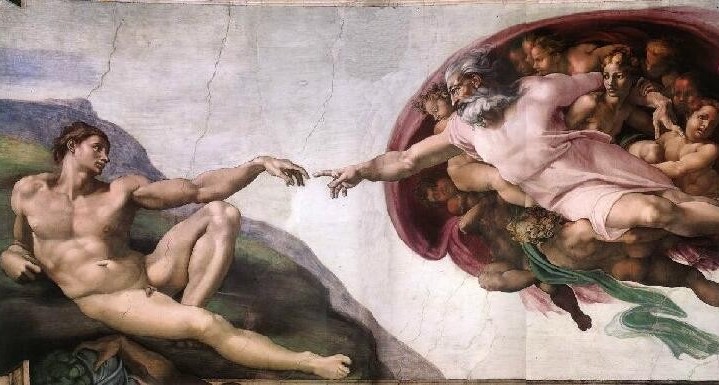
Thursday, March 9
“Then God said, ‘Let us make humankind in our image, according to our likeness; and let them have dominion over the fish of the sea, and over the birds of the air, and over the cattle, and over all the wild animals of the earth, and over every creeping thing that creeps upon the earth’” (Genesis 1:26).
Volumes have been written on what it means that we are created in the image of God—some of it blasphemous and wrong-headed. So, for example, the white supremacist Church of the Creator claimed that only white people are created in God’s image, while the other races are “mud people,” made from the dirt (a deliberate misreading of Genesis 2:7). Others insist that only men are created in God’s image, not women (something tomorrow’s devotional addresses directly).
But by saying that humans bear God’s image, the priests were saying something about God, as well as about humanity. The gods of the nations surrounding Israel were embodiments of natural forces or powers: Baal was the thunderstorm, Asherah was motherhood, Ishtar was raw sensuality. But in Genesis 1:26, the priests of Israel say that God’s likeness is seen in humanity: to understand what God is like, we are to look, not to raw elemental powers, but into the face of another human being. Our passage understands God in personal terms. The rest of the Bible, it could be said, pursues the question, “How can we be in relationship with God?” Right at the start of Scripture, we have a clue in our very humanity. Our own longing for relationship, for connection with one another, tells us something of God’s love for us. As the Bible frankly and extraordinarily declares, “God is love” (1 John 4:8).
Genesis 1:26 goes on to define what being created in the image of God means in greater detail: the image and likeness of God in human being is related to “having dominion” (Hebrew radah) over the rest of creation. Under God’s divine lordship as the ruler of the cosmos, we concretely represent God’s rule in this material world. Unfortunately, in the history of our faith, believers often have misunderstood governing the earth to mean abusing the earth: as if we are free to use the world, and even to use it up, as we see fit. But as we have seen, Genesis 1:1—2:4a affirms God’s valuation of the world in and for itself. If we exercise our dominion properly, we too will recognize the wonder, beauty and inherent goodness of the world that God has made, and exercise our responsibility to be faithful stewards of God’s earth.
Prayer: O Creator, in Jesus you have shown us a human face, full of compassion and love. May we search one another’s faces for your face, and so learn to love you by loving one another. In the name of Jesus, who gives us your new commandment: “love one another” (John 13:34), Amen.